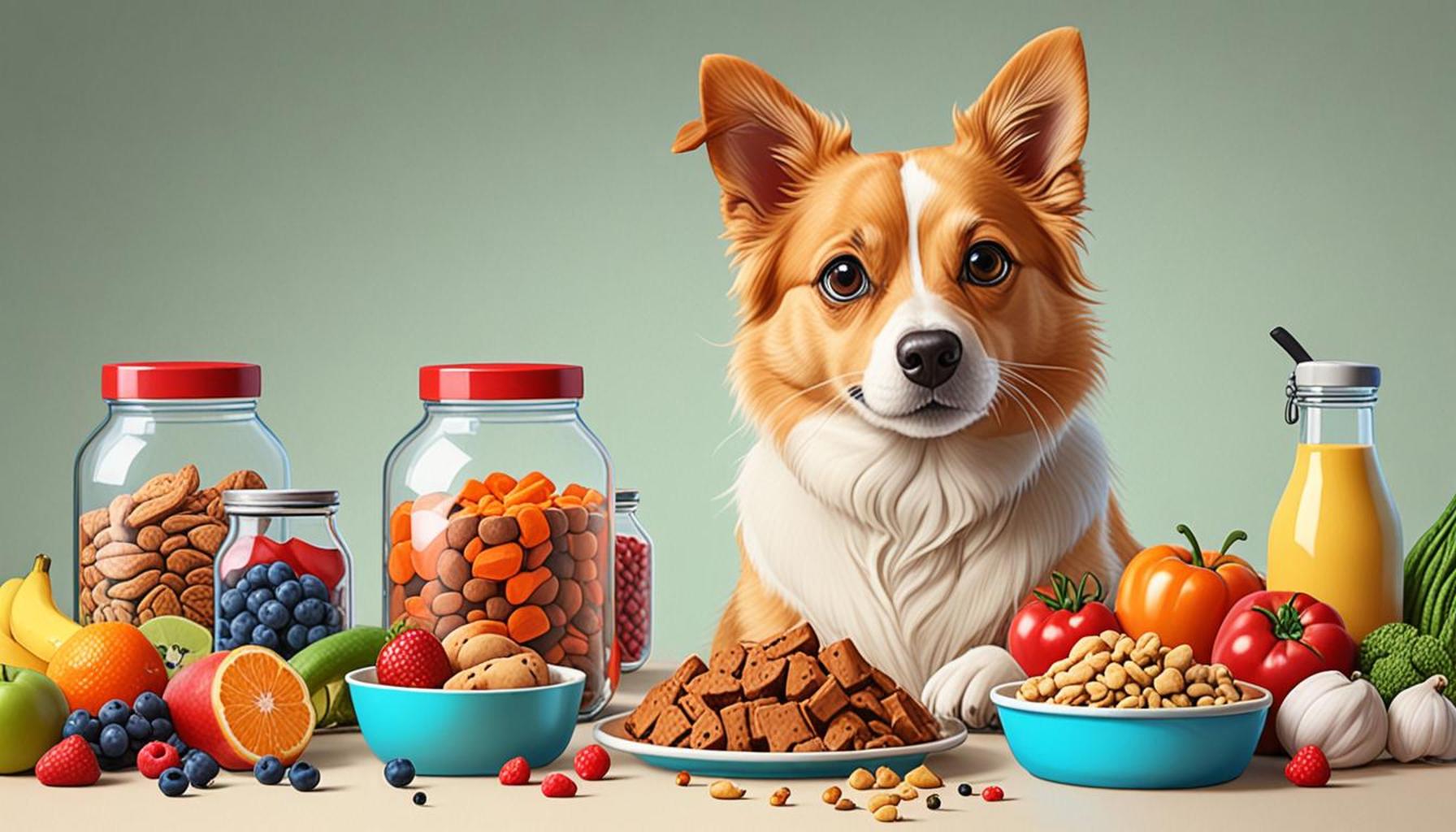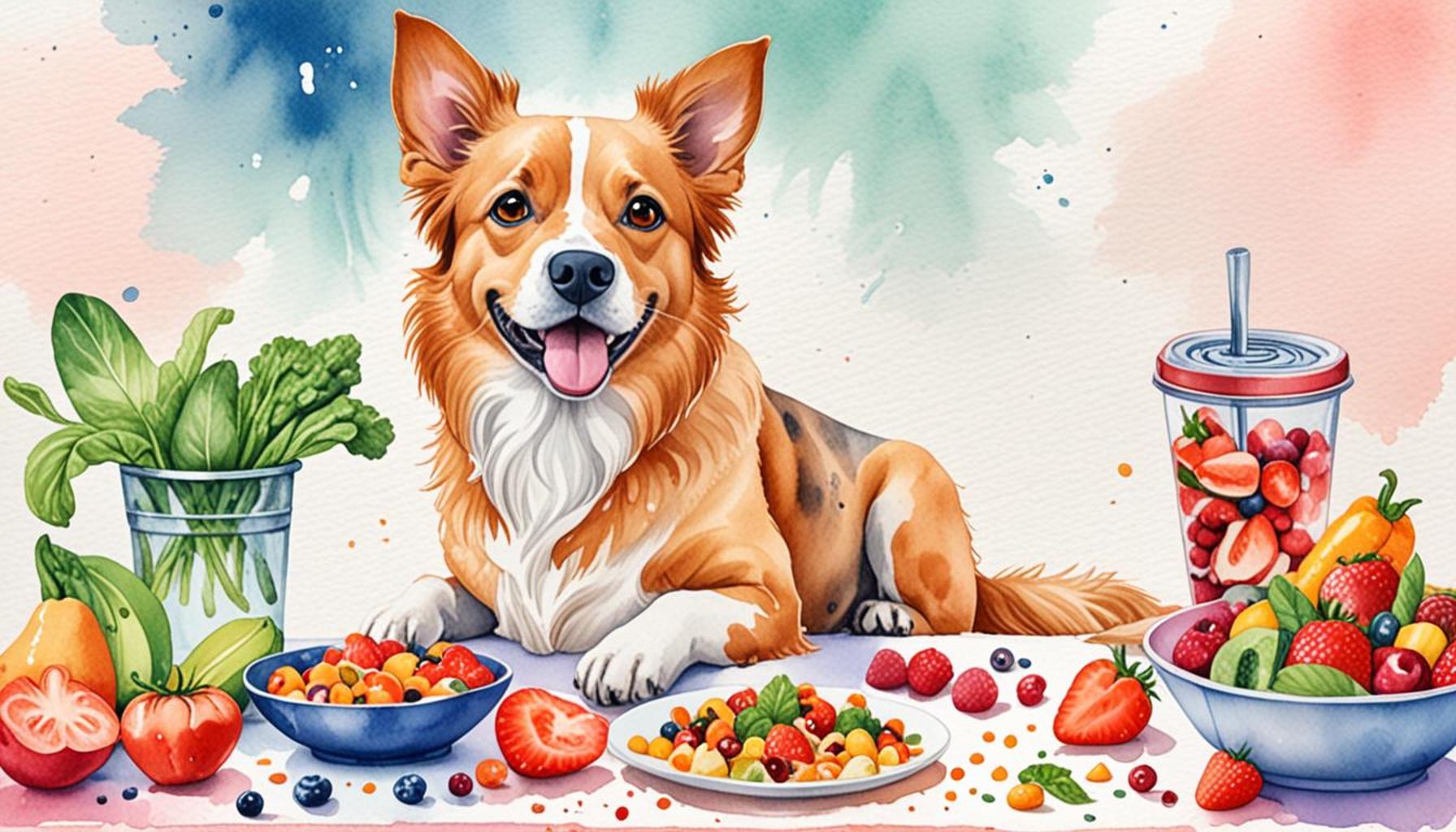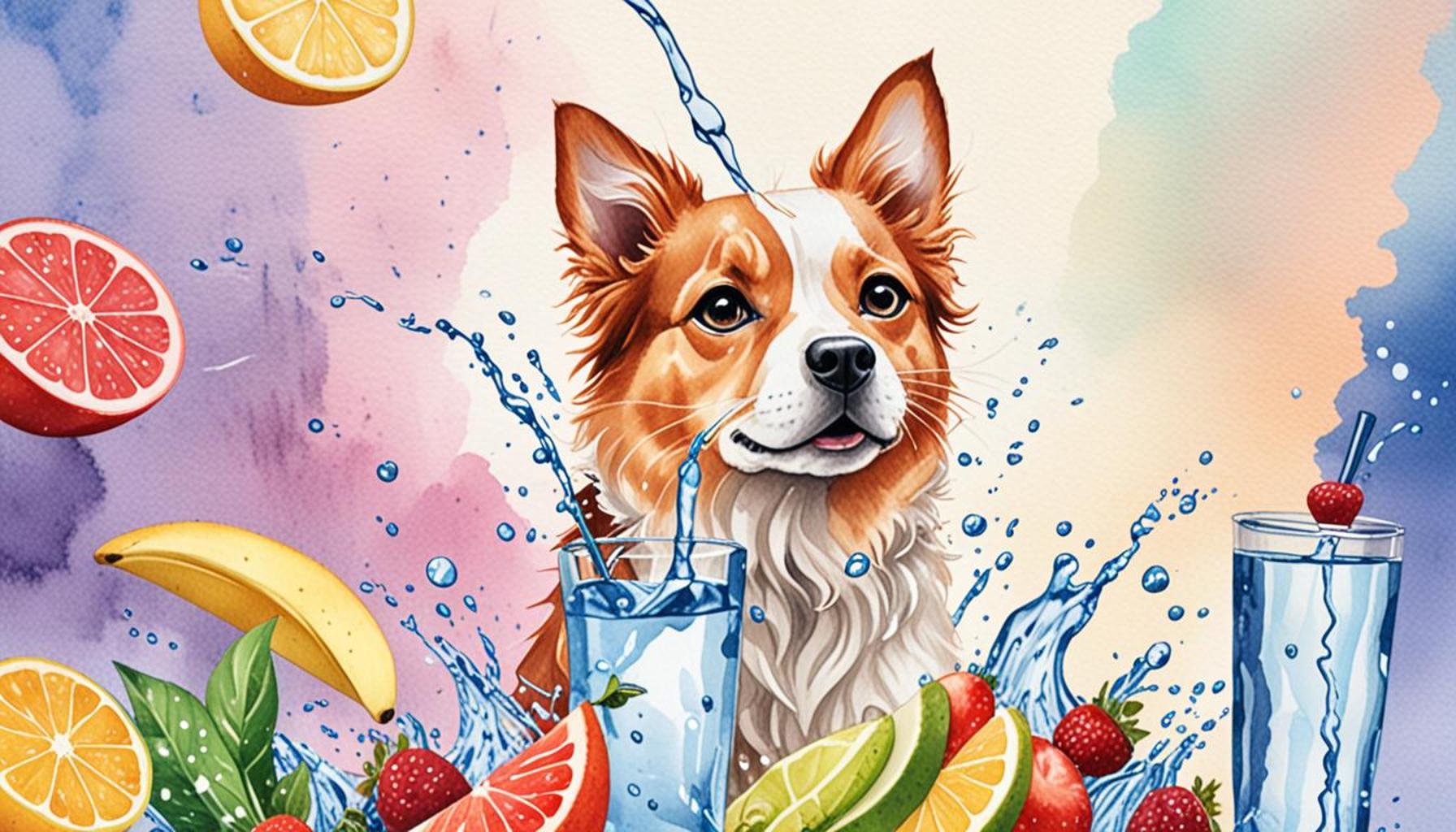How Diet Affects the Longevity of Pets

Understanding the Impact of Diet on Pet Longevity
A pet’s diet plays a crucial role in determining its overall health and longevity. Owners may not realize that the nutritional choices they make can significantly impact their furry friends’ lifespan. By examining the link between diet and pet longevity, we can uncover essential factors for keeping our pets healthy and thriving.
- Quality of Ingredients: Nutrient-rich, high-quality ingredients contribute to a longer life. Dogs and cats require specific vitamins, minerals, and proteins to support their bodily functions. Diets high in whole meats, vegetables, and grains can provide essential amino acids and omega fatty acids, which are vital for maintaining coat health and supporting brain function.
- Life Stage Nutrition: Puppies and kittens require different diets than adult and senior pets. For example, puppies need a higher fat and protein content to support their rapid growth, while senior pets benefit from diets lower in calories yet high in fiber to promote healthy digestion. Pet food brands often tailor formulas to specific life stages, and selecting the appropriate diet can drastically influence long-term health.
- Weight Management: Maintaining a healthy weight can prevent various health conditions such as diabetes, joint issues, and cardiovascular diseases. Obesity in pets has increasingly become a concern in the United States, with studies showing that nearly 60% of dogs and cats are overweight. By providing balanced portions and incorporating exercise, pet owners can play a significant role in their pet’s weight management.
- Specific Needs: Certain breeds or medical conditions may necessitate specialized diets. For instance, large breed dogs often require diets that ensure gradual growth to prevent developmental issues such as hip dysplasia. Likewise, pets with specific allergies or conditions like kidney disease may need special formulations. Consulting with a veterinarian can help owners tailor a diet that best fits their pet’s requirements.
Research has shown that pets receiving a balanced diet are less likely to suffer from chronic illnesses. Moreover, the right nutrients can improve their immune systems, promote healthy digestion, and enhance energy levels. For example, antioxidants found in fruits and vegetables help combat free radicals, thereby reducing oxidative stress in pets. A well-managed diet may even extend a pet’s life by years, emphasizing the importance of thoughtful feeding practices.
Additionally, the method of feeding plays a significant role in a pet’s nutrition. Automated feeders can regulate meal portions, while interactive feeding toys can provide mental stimulation that is essential for behavioral health. As many pet owners seek to improve their pets’ health, trends such as raw diets or grain-free options have emerged, albeit with a need for careful consideration and veterinary guidance.
In the following sections, we will delve deeper into the various aspects of pet nutrition and its correlation with longevity. Understanding these principles can empower pet owners to make informed decisions for their beloved companions. Strategies to enhance your pet’s diet can lead to not just a longer life, but a better quality of life, allowing your furry friend to thrive.
DISCOVER MORE: Click here to learn how social media can help rescued animals

Essential Nutrients for a Longer Life
When it comes to the longevity of pets, understanding the essential nutrients they require is vital. Just like humans, pets thrive on a balanced diet that includes a variety of nutrients tailored to their specific needs. A well-balanced diet for dogs and cats typically includes proteins, carbohydrates, fats, vitamins, and minerals. Each of these components serves a critical function in promoting health and extending life expectancy.
- Proteins: These macronutrients are the building blocks of tissues and play a crucial role in muscle maintenance and overall health. High-quality sources of protein, such as chicken, fish, and beef, provide essential amino acids that pets cannot produce on their own. Inadequate protein intake can lead to muscle loss and other health complications.
- Fats: While often considered a calorie-dense component, fats are essential for energy and absorption of certain vitamins. Omega-3 and Omega-6 fatty acids are particularly beneficial as they promote healthy skin, coat, and cognitive function. Including source fats in moderation can enhance your pet’s overall quality of life.
- Carbohydrates: Contrary to some misconceptions, carbohydrates are an important energy source for pets. Ingredients like sweet potatoes and brown rice can provide sustained energy while also supporting digestion. However, the types and amounts included should be appropriate for your pet’s specific dietary needs.
- Vitamins and Minerals: These micronutrients support various bodily functions, from immune health to bone integrity. Vitamins A, D, and E, along with minerals like calcium and phosphorus, are integral for maintaining a robust immune system and strong skeletal structure.
Inadequate intake of these nutrients can lead to serious health issues, thereby shortening your pet’s lifespan. For example, a deficiency in essential fatty acids can lead to skin and coat problems, while inadequate amounts of vitamins may hinder immune function, leaving pets vulnerable to illnesses. This highlights the importance of choosing nutritional pet food brands that prioritize high-quality, wholesome ingredients to support long-term health.
Recognizing Quality Pet Food
As the trend for pet nutrition evolves, more pet owners want to ensure they are selecting quality food options that cater to their pets’ health requirements. Understanding how to categorize pet food based on quality can aid in making the best dietary choices. Here are some key elements to look out for when analyzing pet food:
- Whole Ingredients: Look for labels that list whole meats, vegetables, and grains rather than by-products or fillers, which may provide less nutritional value.
- Ingredients Lists: A shorter list with recognizable ingredients often indicates a higher quality product. Owners should avoid foods with complex names or chemical additives.
- AAFCO Standards: The Association of American Feed Control Officials (AAFCO) provides guidelines on pet food labeling. Foods that meet AAFCO standards ensure that they provide complete and balanced nutrition.
- Veterinarian Recommendations: Consulting with a veterinarian when selecting a diet tailored to your pet’s needs can significantly impact health outcomes.
In conclusion, the diet of your pet is essential for ensuring they live a longer, healthier life. By incorporating diverse, high-quality nutritional options and being aware of their particular needs, pet owners can significantly affect their companion’s longevity and quality of life. In the next sections, we will explore how different feeding practices and dietary choices further influence pet health and lifespan.
Understanding the Role of Nutrition in Pet Longevity
Proper nutrition is a cornerstone of health and longevity for pets, just as it is for humans. A well-balanced diet tailored to an animal’s specific needs can significantly enhance their quality of life and extend their lifespan. As pet owners, it’s crucial to understand how various dietary components impact our furry friends’ health. One key aspect of pet nutrition is the importance of high-quality protein sources. Dogs and cats require protein for muscle maintenance, immune function, and overall vitality. Additionally, the inclusion of essential fatty acids in their diets can promote healthy skin, a shiny coat, and improved brain function. With the rise of premium pet foods and holistic diets, discerning pet owners have opportunities to provide the most beneficial options available.Moreover, certain nutrients play a pivotal role in supporting longevity. Antioxidants, for instance, have been shown to combat oxidative stress, which is linked to aging and chronic diseases. Ingredients like fruits and vegetables not only add flavor but are also packed with vitamins and minerals that bolster overall health. Maintaining a healthy weight through a controlled diet is another essential factor; obesity can lead to serious health issues, including diabetes and joint problems, which adversely affect a pet’s lifespan. Regular monitoring of a pet’s dietary intake alongside routine veterinary check-ups can ensure that your pet remains within a healthy weight range.In summary, the effects of a balanced diet on pets cannot be overstated. By prioritizing nutrition, pet owners can significantly influence their companions’ health and longevity, leading to a longer and more fulfilling life together. To delve deeper into the subject of pet nutrition and its implications, one can explore various resources that present valuable insights and innovative approaches to dietary formulations for pets.
| Nutrition Category | Impact on Longevity |
|---|---|
| Protein Quality | Supports muscle maintenance and immune health, critical for longevity. |
| Antioxidants | Combat oxidative stress, reducing the risk of age-related diseases. |
Ultimately, understanding the intricacies of your pet’s diet can provide you with the tools necessary to make informed decisions, ensuring they lead a happy and healthy life.
DON’T MISS: Click here to discover why keeping active with your pets is crucial!
Feeding Practices and Their Impact on Health
While the nutritional content of pet food plays a crucial role in promoting longevity, the methods of feeding also significantly influence overall health. The way pet owners approach feeding can determine not only their pets’ weight but also their behavior, metabolism, and even their risk of developing various diseases.
The Importance of Portion Control
Portion control is one of the most critical aspects of feeding. Overweight pets face numerous health challenges, ranging from diabetes to joint issues, which can shorten their lifespans. According to the Association for Pet Obesity Prevention, around 60% of cats and 56% of dogs in the U.S. are classified as overweight or obese. By carefully measuring out food servings based on guidelines from veterinarians or pet nutritionists, pet owners can help maintain a healthy weight, significantly increasing the chances of a longer life for their furry companions.
Frequency of Feeding
The frequency with which pets are fed also merits attention. Traditional practices often revolve around two meals a day for dogs and free feeding for cats. However, recent studies suggest that multiple smaller meals may be more beneficial. Feeding pets smaller portions throughout the day can mimic their natural eating habits, promoting stable energy levels, preventing boredom, and minimizing digestive issues. Cats, in particular, are prone to obesity and related disorders; thus, monitoring their feeding frequency can be a game changer for health.
Homemade Diets vs. Commercial Foods
As pet owners become more aware of nutrition, the debate between homemade diets and commercial pet foods has gained traction. Homemade meals can offer fresh ingredients and individualized nutritional plans tailored to a pet’s specific needs. However, preparing balanced diets at home requires a solid understanding of nutrition, as deficiencies can lead to severe health implications. A study published in the Journal of the American Veterinary Medical Association found that many homemade diets failed to meet AAFCO standards, resulting in nutritional imbalances.
On the other hand, reputable commercial pet foods are formulated to provide complete nutrition. The challenge lies in selecting quality brands. The evolution of the pet food industry has introduced a range of options, including grain-free, raw, and limited-ingredient diets, all claiming to boost pet health. Understanding these options and consulting with a veterinarian can help owners make informed choices that align with their pet’s unique requirements.
Special Considerations for Seniors
Aging pets often face different health challenges, making dietary considerations even more essential. Senior pets may require diets lower in calories yet richer in certain nutrients, such as fiber and antioxidants, to support metabolism and combat oxidative stress. Foods enhanced with glucosamine and omega fatty acids, for instance, can support joint health and improve mobility in older pets.
- Senior Formulas: Many brands offer specialized formulas for senior pets, focusing on proper weight management and vital nutrients that promote longevity.
- Regular Vet Check-ups: Routine visits to the veterinarian should also include nutritional assessments, ensuring your pet’s diet aligns with their age and health status.
With thoughtful feeding practices and a keen understanding of the nutritional landscape, pet owners can greatly influence their companions’ health trajectories. Through strategic dietary choices, they can enhance not only their pets’ wellbeing but also potentially extend their lives, leading to happier and healthier years together.
DISCOVER MORE: Click here for essential travel tips for your pet
Conclusion
In conclusion, the connection between diet and the longevity of pets is both profound and undeniable. As pet owners, it is essential to recognize that the food we provide plays a pivotal role in maintaining our pets’ health and wellbeing. From ensuring proper portion control to considering the frequency of meals, each decision we make can significantly impact our pets’ weight, behavior, and susceptibility to diseases.
Moreover, the debate surrounding homemade diets versus reputable commercial foods is an essential consideration for those aiming to enhance their pets’ quality of life. While homemade meals can be tailored to individual needs, they require knowledge and careful planning to avoid nutritional deficiencies. In contrast, high-quality commercial pet foods are designed to meet established nutritional guidelines, promoting a balanced diet and overall health.
Furthermore, the dietary needs of pets can change as they age, underscoring the importance of adapting feeding practices and consulting with veterinarians. Incorporating specialized formulas for senior pets can help address specific challenges and improve their quality of life.
Ultimately, a proactive approach to pet nutrition fosters not only a healthier lifestyle but may also contribute to a longer lifespan. By taking the time to understand the intricacies of pet diets and making informed decisions, owners can ensure that their beloved companions enjoy not just a few more years, but a vibrant and fulfilling life. A thoughtful investment in their diet ultimately translates to countless happy moments together.



